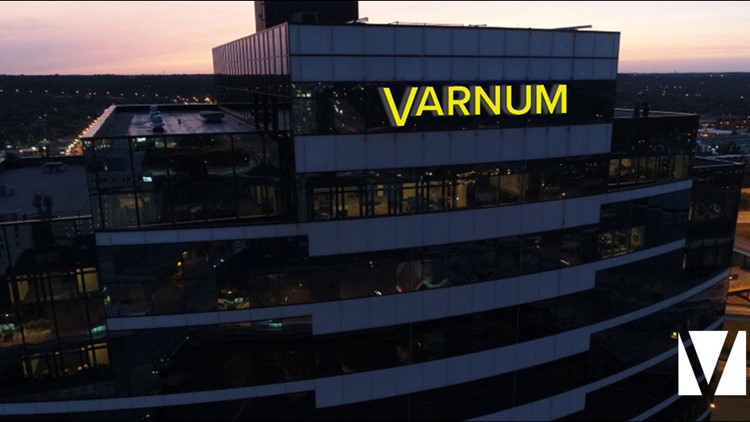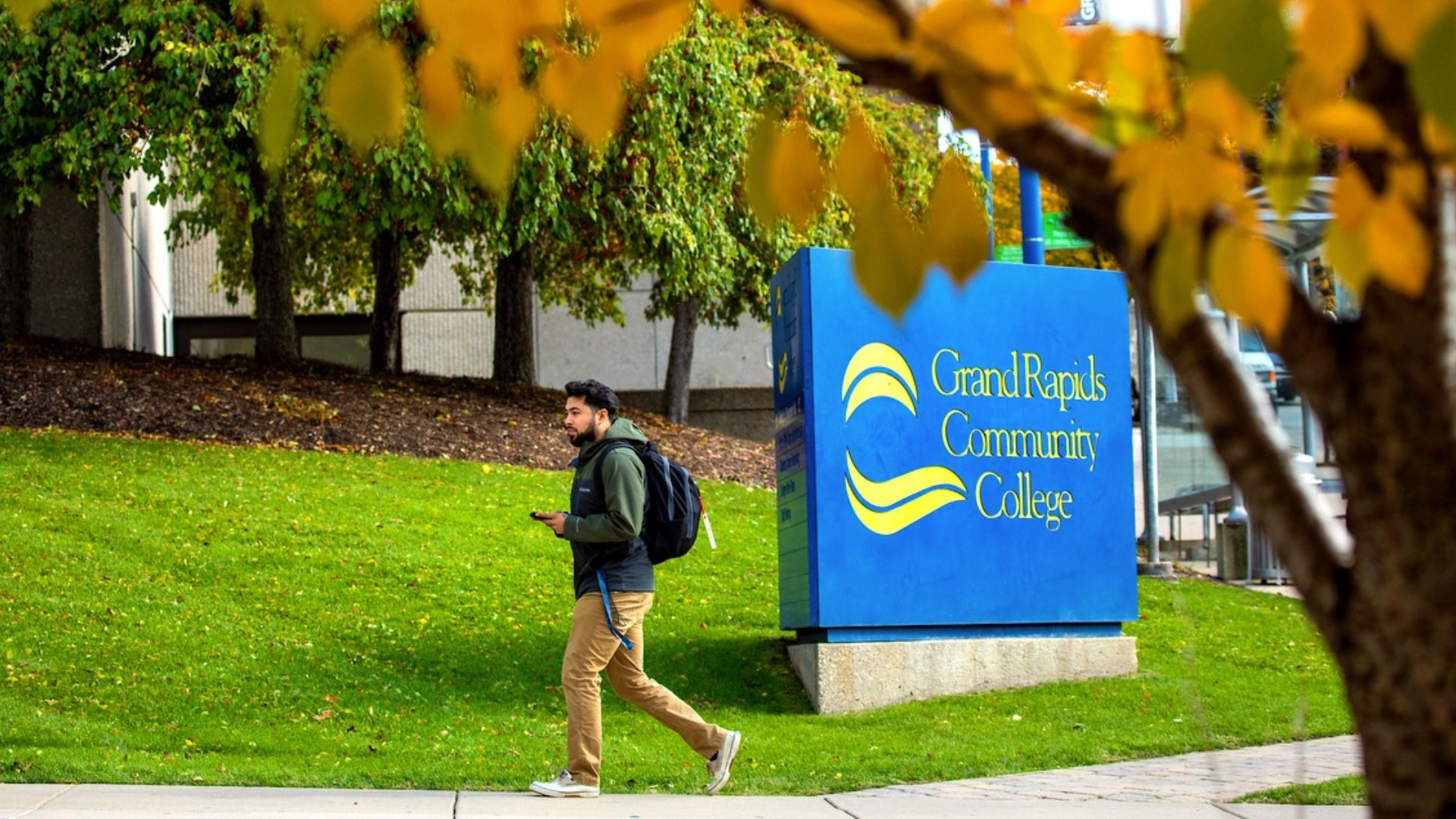GRAND RAPIDS, Mich. — GRBJ—Varnum LLC is entering the world of college athletics.
The Grand Rapids-based law firm recently launched a practice group dealing with the results of the 2021 landmark NCAA v. Alston case that enabled collegiate athletes to benefit financially from their own name, image and likeness (NIL).
The unanimous ruling by the U.S. Supreme Court changed the trajectory of collegiate athletics.
As Philadelphia-headquartered Stradley Ronon explained in a 2021 report, “NIL rights encompass a bundle of rights also frequently called an individual’s right to publicity, but including trademark rights.
“Ordinarily, any person may use his or her NIL for commercial or promotional purposes. Commercial purposes include accepting money in exchange for being featured in advertisements or endorsing products. Promotional purposes include promoting their own public appearances, brands or companies. Previously, the NCAA prohibited student-athletes from profiting from the use of their NIL for commercial and many promotional purposes, forfeiting their rights as a term or condition by signing their scholarship agreements and as a requirement for eligibility to participate in intercollegiate athletics.”
That ruling created a need for higher education-focused lawyers comfortable with sports law to help navigate those contracts.
Varnum’s new NIL team is headed by Richard Hewlett and Jessica Visser, two lawyers with a substantial background in collegiate athletics.
Hewlett, a former University of Michigan football player, is familiar with the world of college athletes both on the field and off.
“That experience really helped me,” Hewlett said. “Coming out of law school, almost immediately I started representing coaches (and) college athletes in non-NIL stuff at the time. Then that evolved into representing basketball, football, hockey.”
Hewlett has been working with athletic teams and individuals for the past 33 years, a career that has prepared him to take the lead as Varnum navigates the new world of NIL.
Visser has a background in higher education as well, serving at the University of Toledo as in-house counsel, where she worked with the university athletic department on NIL matters, NCAA compliance, and strategic negotiation of coach contracts, among other topics.
Together, Visser and Hewlett are leading a group of 10 attorneys that make up the Varnum NIL team with experience including:
- Forming and structuring collectives, including on behalf of a Big Ten University’s football and basketball programs
- Group licensing deals, including with respect to trading cards
- Securing, protecting and defending NIL and other “indicia of persona” assets for athletes, including on behalf of a Heisman Trophy and Super Bowl MVP winner
- Creation and maintenance of trademark and copyright protection for athletes and coaches
- Negotiating marketing, licensing and endorsement agreements on behalf of brands, coaches and athletes, including with respect to apparel and media rights
- Advising higher education institutions on NCAA compliance to ensure athlete integrity and eligibility
- Representing coaches and athletes in their estate planning and asset protection needs
“The goal is to provide broad services at a very high level to our clients,” Hewlett said.
Varnum’s NIL coverage includes NCAA compliance; corporate structuring; membership agreements; brand, licensing and marketing agreements; tax structuring and compliance; intellectual property; and estate planning.
“I think informally we've started doing this work eight or 10 months ago,” Hewlett said of Varnum’s NIL efforts. “As we saw this start to grow and evolve a little bit it became evident to us that putting these different areas of the law practice together would really help serve our clients.”
Hewleltt and Visser said the NCAA v. Alston case opened up a whole new area of marketing, licensing and contract-type work, but, because it is new territory for lawyers, it isn't without its difficulties.
‘There's so many different regulating bodies,” Visser said. “It's not just the state legislature or the NCAA — student-athletes and boosters and higher-ed institutions need to make sure that they're complying with all of the different guidelines that these bodies have put forth.
“We think we can really be an asset to our higher-ed clients because the NCAA has really put a lot of the regulation responsibilities on higher-ed institutions. So, we think we can help them navigate those compliance components, as well as student-athletes (because) they probably don't know quite what they're getting into (since) they're usually young adults.
“I think boosters and collectives are excited that they can contribute to student-athletes now given the developments in the law, but they don't know how to do that without getting themselves into trouble. It's always been taboo, being an NCAA booster, and now kind of the floodgates are open. So, we want to help our clients navigate that in a legal way.”
Another unique aspect of NIL relationships is the newness of the regulations that are being followed. Visser added that it’s likely those regulations will continue to shift over time as the NIL landscape develops.
An additional complication is navigating student-athlete and client relationships.
“You have, in some instances, very sophisticated investors, very sophisticated brands that are used to high level, very detailed agreements, duties and obligations between the parties on one hand. And then you have 18-, 19- and 20-year-old kids that would do any of this on a handshake probably,” Hewlett said. “So, you're trying to balance what might be a really sophisticated client's view of what the relationship should be with potential student-athletes or maybe boosters or donors who are new to the game and what their expectations are.”
As Visser pointed out, since these contracts between collegiate athletes and interested parties tend to be more compliance-heavy in nature, it is important to make sure that students entering into NIL contracts are fully aware of the laws in their state and all aspects of the agreements they are entering into.
Following a successful first month as an official team, Hewlett and Visser are excited to continue seeing where this new venture will take them.
“The work and expertise that Jessica brings to the table and that our NIL group in general has allows us to really work across the entire country and any of the states that are involved in this,” Hewlett said. “We'll have the ability to analyze each individual state's law, university rules and regulations that might apply, and the NCAA guidelines cut across all institutions at this point. We're on the front end of this in terms of starting with what we know best here in Michigan. I wouldn’t be surprised if we end up in California and potentially Ohio, but there's no limitation in terms of geography as to what we can do to meet clients' needs right now.”
This report first appeared in the Grand Rapids Business Journal.
►Make it easy to keep up to date with more stories like this. Download the 13 ON YOUR SIDE app now.
Have a news tip? Email news@13onyourside.com, visit our Facebook page or Twitter. Subscribe to our YouTube channel.



